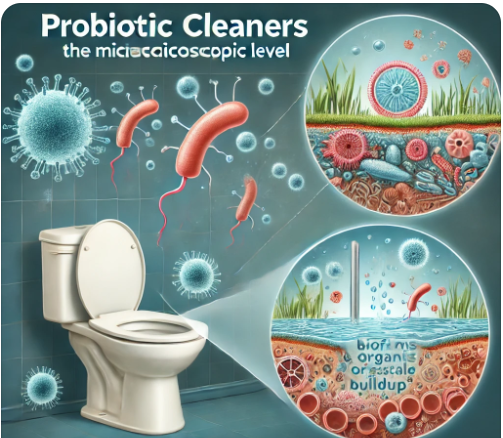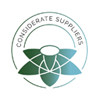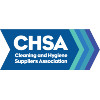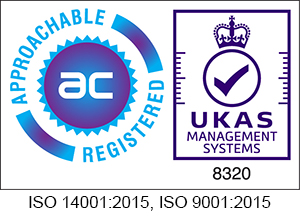Why the need for Toilet Descalers in hard water areas is decreasing
The extraction and use of oil in the manufacture of some cleaning chemicals can play a significant role in increasing atmospheric carbon levels. Oil extracted from the ground releases trapped carbon when it is burned or otherwise processed. The carbon in oil is part of long-stored organic matter that has been buried underground for millions of years. When oil is burned as fuel or used in industrial processes such as making cleaning chemicals, the carbon contained in it is released into the atmosphere in the form of carbon dioxide (CO2), a greenhouse gas. This release of CO2 contributes to the greenhouse effect, which is a primary driver of climate change. Therefore, the extraction and use of oil plays a significant role in increasing atmospheric carbon levels.
Speaking to clients and potential clients a large proportion of the UK cleaning industry seem convinced that cleaning with probiotics and vegetable-based products is the future, as probiotic and vegetable-based cleaners’ breakdown quickly and fit much better into the circular economy model.

All this is fine, but the fact is that a significant proportion of the population in all walks of life will not pay more for the privilege of saving the planet (there are of course exceptions). In the last few years, the cost of super concentrated probiotic cleaners once diluted has reduced significantly and now these products can be significantly cheaper than their petroleum derived cousins.
Let’s look at concentrates in the ntrl range of probiotic cleaners with dilution rates from 100 to 1 to 150 to 1, this makes the cost of the diluted product only pennies. Furthermore, the long-term efficacy of these products has been proven to exceed that of conventional cleaners.
The one drawback on the cost front is, ready to use toilet descalers which can be 25% more expensive than their petroleum derived competitors.
Now here’s the good part. In tests we have carried out in a hard water area (London) we compared conventional washroom and toilet cleaners with their probiotic equivalents, and we have found that the need to descale toilets is less frequent.
Our client was previously descaling weekly, however they observed very quickly that there was less and less scale forming, at the end of a 3-month period we agreed that descaling was probably only necessary on a monthly basis and even then, the buildup was nowhere near the previous levels.

How could this possibly be, the bacteria do not digest lime scale? It turns out that organic matter, such as biofilms or residues from human waste, can provide a surface for limescale to adhere to more easily. Once limescale begins to form, it can create a rough surface that attracts more deposits, leading to thicker and more stubborn limescale buildup.
Probiotic cleaners get deeper into very small crevices of what appear to be smooth services and continue to work for up to 5 days or until all organic material has been removed. They tend to leave surfaces almost devoid of organic matter and therefore we end up with much lower levels of scale build up.
In conclusion, and in general terms you may pay up to 25% more for organic toilet descalers but you will be using 75% less product. Good for your pocket and even better for the environment.
If you need additional advice or guidance register your interest at https://www.janitorialexpress.co.uk/contact-us or email us at sales@janitorialexpress.co.uk






